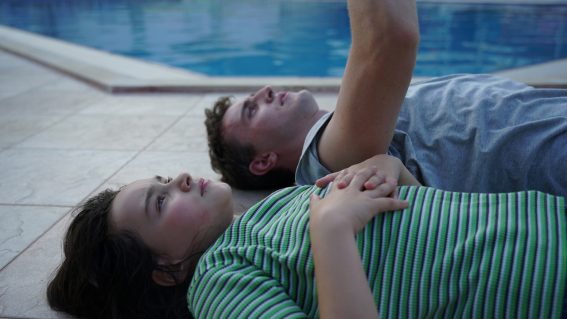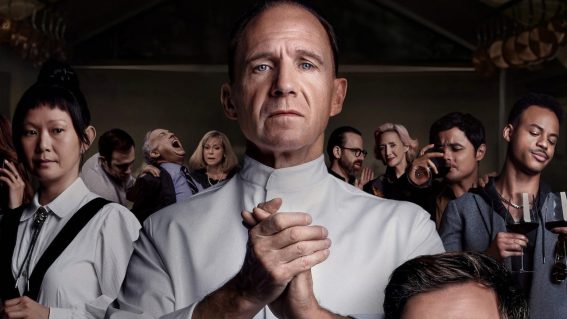Despite many faults, is the totally OTT Babylon entertaining? Yes, yes, absolutely yes

Hollywood history is viewed through a scandalous lens in director Damien Chazelle’s Babylon, starring Margot Robbie and Brad Pitt. Amelia Berry digs into the highs and lows of this contradictory pic – one that’s both gorgeously-shot melodrama and gross-out comedy that would put the Farrelly brothers to shame.
Sex, drugs, death, piss, vomit, and shit; it’s all onscreen (and sometimes all over the camera lens) in Damien Chazelle’s new three-hour epic of old Hollywood decadence, Babylon.
After stepping in to save a long-in-development studio project with his last film, First Man, Babylon feels like Chazelle is finally cashing that blank cheque he earned from the massive success of Whiplash and La La Land. Returning to the LA dreams and disappointments of that latter film, Babylon is a sprawling tale of death, lust, and ambition amidst the transition from silent film to talking pictures.
It’s a gorgeously-shot melodrama about the exhausting boom bust cycles of fame, it’s a “love letter to cinema” overflowing with adoring references, and yet somehow, it’s also an overly-long, cloyingly sentimental, gross-out comedy that would put the Farrelly brothers to shame.
The story follows a handful of Hollywood hopefuls from 1926 through to the early 30s. There’s Manny Torres (Diego Calva), a Mexican-American immigrant who through some odd off-screen contrivance goes from dogsbody to big-time studio executive. There’s Nellie LaRoy (Margot Robbie), an aspiring actress from the wrong side of the tracks, whose massive talent is only offset by an even bigger chip on her shoulder.
There’s also Jack Conrad (Brad Pitt), a big time star of silent films, who is torn between his love of movies as they are and his desire to see them elevated to the level of Bauhaus and 12-Tone composition (sort of…he mostly spends his time staring into the middle distance).
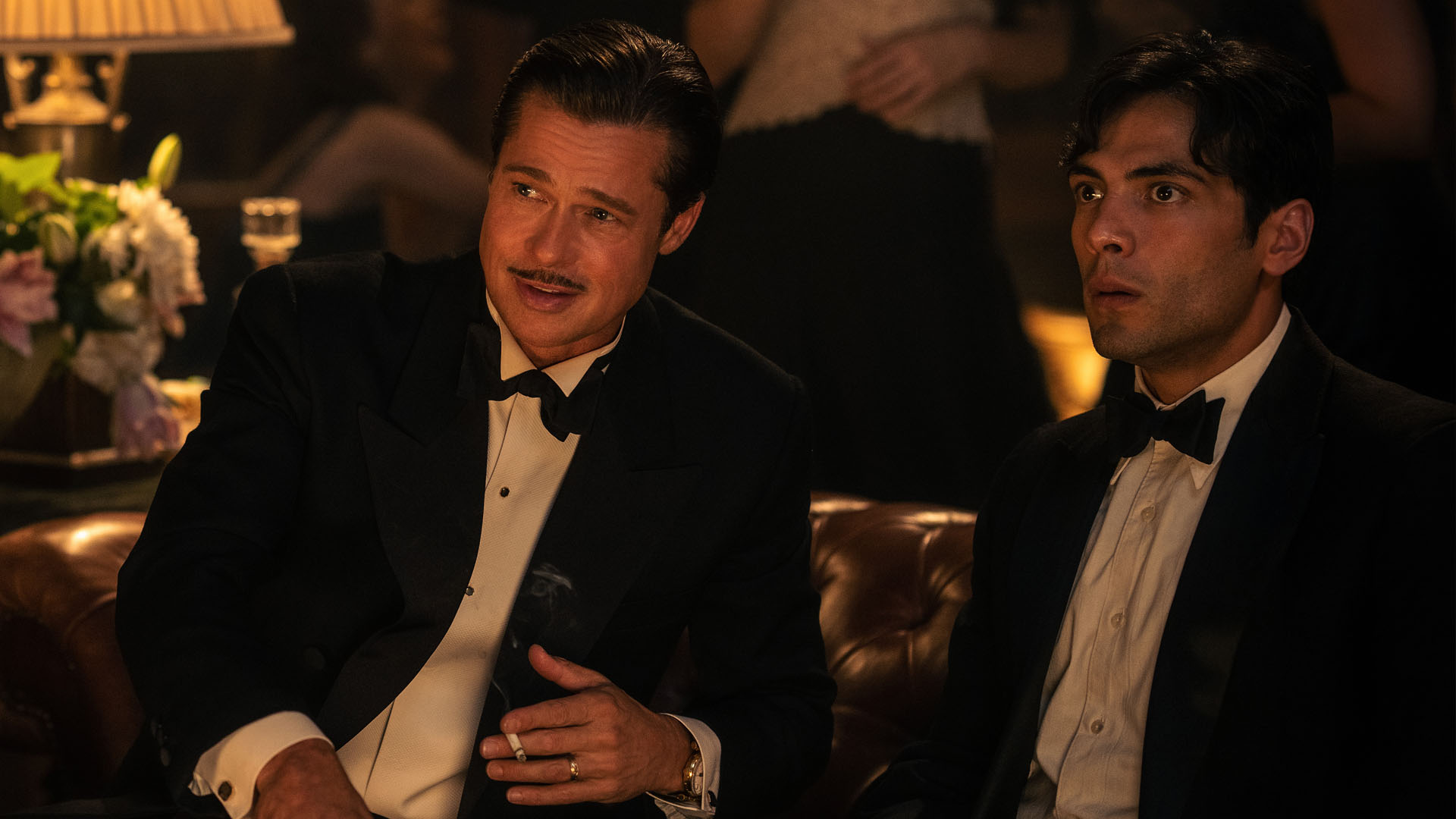
Basically, the movie is a series of long sketches about all the crazy and depraved things that must have gone on in Hollywood back in the day. The humour is pretty basic; an elephant shits on a man’s face, Nellie vomits on a guy, someone gets impaled, or falls over, or gets bitten by a snake, or pissed on. A shocking amount of the runtime is dedicated to Margot Robbie being exasperated and screaming obscenities, which, to her credit, she’s pretty good at. As much as Babylon wants to be in dialogue with Singin’ in the Rain, often it’s probably closer to I, Tonya, or Don’t Look Up.
The costumes, hair, and makeup are also more in-line with goofy comedy than passion-project historical drama. According to costume designer Mary Zophres, “Damien didn’t want it to look like another 1920s movie, so it’s a combination of references like Studio 54 (that kind of debauchery).”
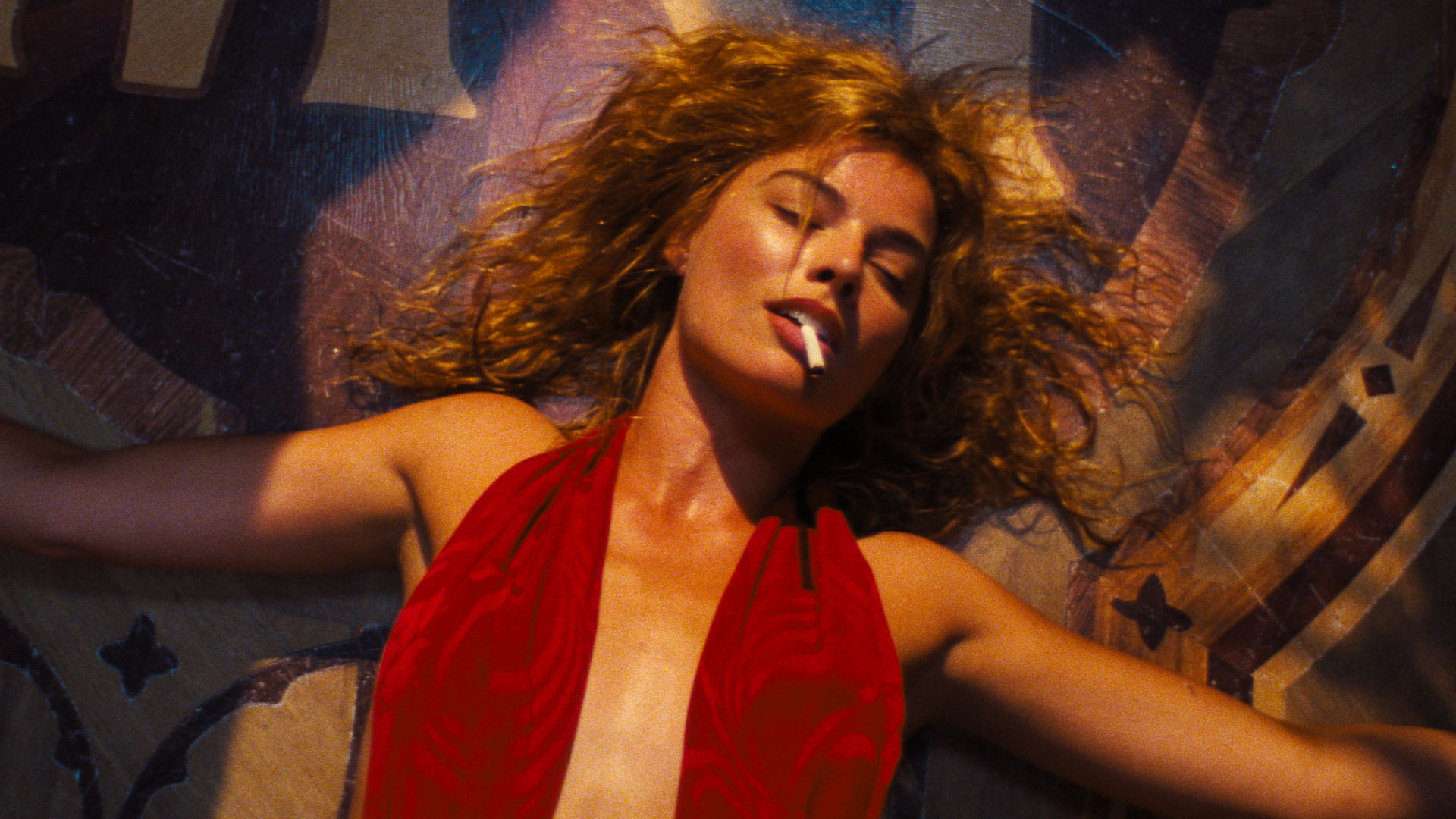
This kind of anachronism can be effective in a hyper-stylised movie like Moulin Rouge or The Love Witch, but in Chazelle’s otherwise pretty naturalistic film, it just feels a little odd. With the more modern costuming reserved for the leads, Robbie looks like she’s just walked in off the set of Showgirls, and the faux-20s movie footage winds up looking more like moody 90s perfume adverts than triumphs of silent cinema. Eau de Merde d’éléphant.
What plot there is is often smuggled in via montage or happens offscreen. Which is all well and good until Babylon wants to hit its big emotional beats in the end third, and then it all falls a little flat. We’ve simply seen much more of Brad Pitt drunkenly yelling “Frankly Scarlet, you’re a c**t”, than we’ve seen him be any kind of real feeling person.
At the very end of the film, one character sits down in 1952 and watches Singin’ in the Rain (there’s A LOT of Singin’ in the Rain here), crying as the rest of the theatre laughs because; turns out it’s a lot less funny when you lived through it. Cut to: clips from Babylon bookending maybe the most self-indulgent sequence you will ever see on screen, one that just feels totally unearned.
Worse, its pompous celebration of cinema feels jarringly at odds with the decadent horror-show of suicide and drug abuse we’ve just sat through for three hours. If it’s trying to pull depth from this contradiction, then it hasn’t done the work to justify it. It almost feels like Chazelle actually hates movies and film history and wants to shove the whole saccharine Hollywood fantasy in your stupid moviegoing face so you hate it all too.
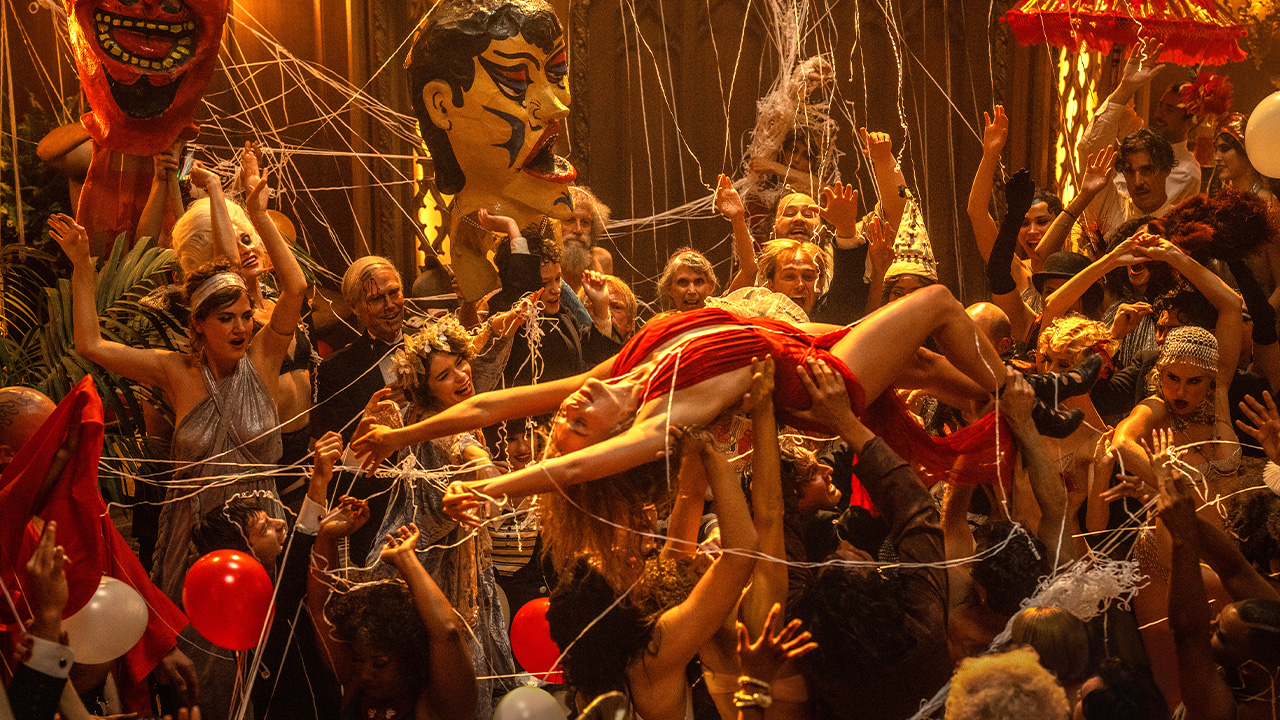
That all being said (!), Babylon is a totally compelling film. Despite everything else, it never stops being spectacular, and that pure momentum makes it feel a lot less than its 189 minutes. The cinematography is beautiful (if plagued by some disconcerting directorial choices), but really it’s sold by its huge performances.
Robbie may be doing Harley Quinn via Tonya Harding but she does it well. Newcomer Diego Calva manages to inject his role with a depth and charisma not evident in the script. Li Jun Li as a kind of Anna May Wong meets Marlene Dietrich, and Jovan Adepo as an ambitious jazz bandleader are both brilliant foils to the main cast.

The scene-stealers though are undoubtedly Jean Smart as a Louella Parsons-style film columnist, and Tobey Maguire as a brilliantly deranged mob boss. Smart delivers a monologue to Brad Pitt’s character about the immortality granted by Hollywood that’s the one emotional beat that really lands (even if the content of speech makes less sense the more you think about it).
Later, Maguire takes Calva and Robbie on a welcome diversion into a truly seedy underground club that feels ripped from a Tod Browning horror, giving us maybe the only “shocking” parts of the movie that could actually shock.
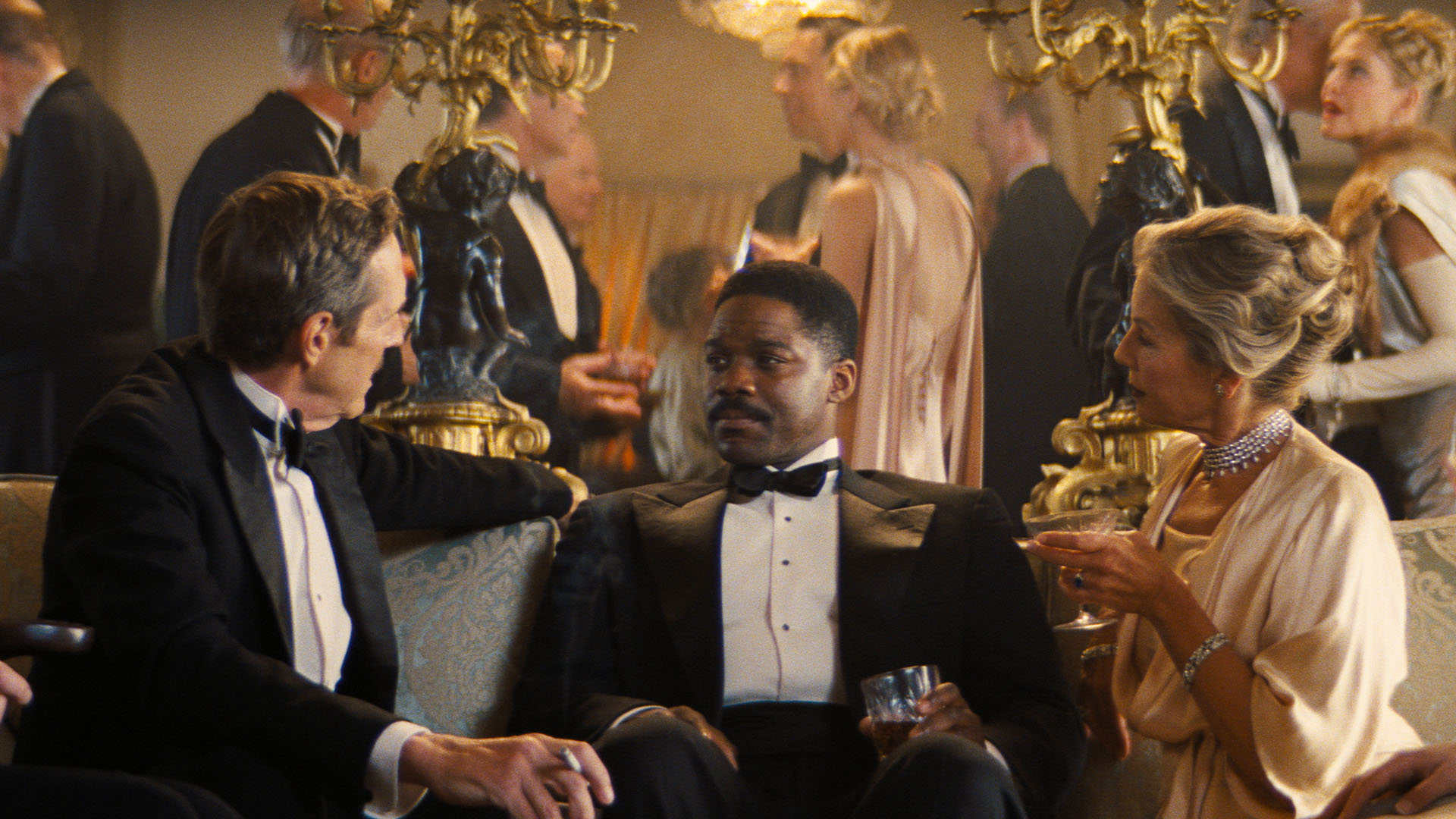
Is Babylon a disquieting exposé of the dark side of show biz? No, it’s only really cruel to its characters of colour and even then it’s more sad than depraved. It doesn’t actually have much to say about anything other than “movies are big and cool”. If you love the cinema of the 20s and 30s then there’s surprisingly little here for you. If you’re an aficionado of Kenneth Anger’s infamous gossip book Hollywood Babylon (more on that here), then you’ll recognise a handful of incidents, albeit played for straight comedy, but without Anger’s side-eye archness and whiff of evil.
Is it entertaining though? Yes, yes, absolutely yes. Despite content and quality and length and being kinda bad and dumb. Despite everything, Babylon is undeniably captivating. And hey, maybe that’s the magic of cinema right there.






